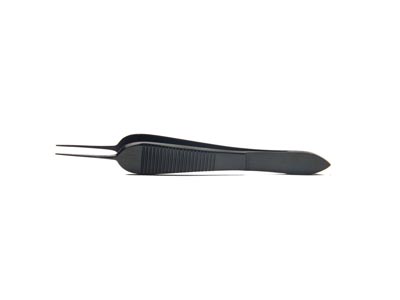Titanium surgical instruments offer several advantages over stainless steel instruments:
- Titanium is lightweight with a high tensile strength.
- Titanium is durable, even after repeated autoclaving.
- Titanium is corrosion resistant, non-ferrous, non-magnetic and bio-compatible.
- Anodized titanium surgical instruments are non-reflective.
First, titanium is 40% lighter than stainless steel, which reduces hand fatigue. Lightweight surgical instrument are simply easier to handle, especially during long surgical procedures or dissections or when performing repetitive tasks. This also means that titanium surgical tools are more flexible than their stainless steel counterparts.
With the strength of steel, titanium surgical instruments are durable, allowing you to repeatedly sterilize them without fear of damaging the surfaces or cutting edges. Because titanium may be heated up to 440°F, titanium surgical instruments may be autoclaved, as needed.
Because titanium is a non-ferrous metal, it will not rust. It resists corrosion even in the presence of oxidizing acids (like nitric acid), chlorides, saltwater, and industrial and organic chemicals. If you are doing any work with MRIs, you will want to consider titanium surgical instruments, because they are 100% non-magnetic.
Titanium is naturally a gray metal, but by anodizing the surgical instruments, manufacturers change the surface properties of the metal. Titanium surgical instruments can come in a rainbow of colors, but they are typically blue. The anodizing also makes the surgical instruments non-reflective so that there is no glare. When you are working under operating lights or even under a microscope, this becomes an important feature.
Titanium is an ideal metal for the construction of surgical instruments, because the instruments are lighter, more durable, last longer, stay sharper and are more comfortable to use.

